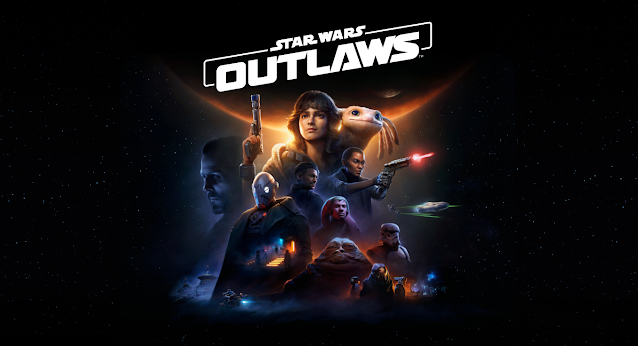
Su Majestad la Reina doña Sofía ha presidido el solemne acto de entrega de los Telefónica Ability Awards, los premios organizados por Telefónica para reconocer y valorar a las empresas y organismos que mejor están integrando la discapacidad en su modelo de negocio.

S.M. la Reina doña Sofía y César Alierta, presidente de Telefónica; la presidenta de la Comunidad de Madrid, Esperanza Aguirre; el ministro de Industria, Turismo y Comercio, Miguel Sebastián; Mº Isabel Martínez Lozano, secretaria general de Familia y Discapacidad, y Caroline Casey, fundadora de Kanchi, con los ganadores de los Telefónica Ability Awards.
Al evento, que ha tenido lugar en la sede de Telefónica en Madrid, Distrito C, han asistido más de 400 invitados, incluidos representantes del Gobierno y de las Comunidades Autónomas, personalidades de la vida cultural y política, representantes de las Organizaciones Sindicales, destacados miembros del mundo empresarial y del ámbito de la discapacidad, y medios de comunicación.
Los ganadores de esta primera edición, que han recibido de manos de Su Majestad la Reina una escultura del artista irlandés Shane Holland, han sido seleccionados por el Patronato de los Telefónica Ability Awards, formado por el presidente de Telefónica, César Alierta, y una treintena de personalidades entre las que destacan los ministros de Presidencia, Ramón Jáuregui, Sanidad, Política Social e Igualdad, Leire Pajín, e Industria, Turismo y Comercio, Miguel Sebastián; la Presidenta de la Comunidad de Madrid, Esperanza Aguirre, y representantes de empresas, Universidades, sindicatos y asociaciones vinculadas al mundo de la discapacidad, como CERMI (Comité Español de Representantes de Personas con Discapacidad), ONCE y Fundación ONCE.
En noviembre, el Patronato seleccionó a 48 empresas finalistas, las “Compañías Ability, de las 273 que se presentaron inicialmente. Durante todo el proceso, que se inició el pasado mes de abril, se ha contado con la supervisión y el apoyo de PwC España.
Los Telefónica Ability Awards han premiado a las siguientes empresas y entidades:
En las tres CATEGORÍAS ABSOLUTAS, los ganadores son Repsol, como Mejor Gran Empresa Privada, Hotel Entremares como Mejor Pyme y Aena, en la categoría de Mejor Institución Pública.
En las CATEGORÍAS PRINCIPALES se premian seis iniciativas diferentes:
- Compromiso de la alta dirección y liderazgo de los empleados, premio que reconoce a la entidad que mejor ha integrado en su estrategia a personas con discapacidad, y que ha ganado la empresa palentina de alimentación Grupo Siro;
- Reclutamiento y selección, premio que reconoce a la organización que se preocupa activamente por la selección y atracción de personas con discapacidad, categoría en la que ha resultado ganadora MRW;
- Accesibilidad, premio que reconoce a la entidad que proporciona el entorno más seguro, cómodo y accesible en sus instalaciones, y que ha ganado Sanitas;
- Orientación a clientes, premio que reconoce a la entidad que destaca por desarrollar productos y/o servicios dirigidos a personas con discapacidad, que gana el Ayuntamiento de Ávila;
- Desarrollo profesional y formación, premio que reconoce a la organización que garantiza que cada empleado tiene las mismas oportunidades de formación y promoción, categoría en la que vuelve a resultar ganador el Grupo Siro;
- Prevención y retención, que reconoce a la entidad que destaca por establecer los medios necesarios para prevenir la discapacidad sobrevenida y conseguir la retención de los empleados que adquieran una discapacidad permanente, cuyo premio recae en Capgemini.
El papel de Telefónica es actuar como facilitador e integrador y ayudar al trabajo del Patronato de los Ability, auténtico motor de este cambio de percepción hacia el mundo de la discapacidad que se persigue como objetivo. La compañía tiene el compromiso de extender en los próximos años la celebración de los Ability Awards a otros mercados en los que está presente, tanto en Europa como en América Latina.
En palabras del presidente de Telefónica, César Alierta, los Ability Awards son singulares porque “ponen a la persona con discapacidad en el centro de la cadena de valor, al igual que cualquier otro segmento de clientes, y porque van más allá de la filantropía, potenciando la innovación para lograr nuevos modelos de negocio sostenibles, capaces de cubrir las demandas de este colectivo”. Tras el estudio de todas las candidaturas, explicó Alierta, “hemos aprendido mucho. Pero, por encima de todo, hemos aprendido esto: cuando incorporas la discapacidad en la estructura productiva de cualquier institución, creas valor para todos. Todos salimos ganando”.
Los Ability Awards tienen su origen en Irlanda, donde son patrocinados por Telefónica O2 desde hace cuatro años y han conseguido un gran impacto en el mundo empresarial y en la sociedad. Fueron creados por Kanchi, una organización sin ánimo de lucro constituida para mejorar las relaciones entre las personas con discapacidad y la sociedad. Tras el éxito logrado, Caroline Casey, fundadora de Kanchi, se planteó extender los galardones a otros países. “No ha habido un momento mejor que éste para exportar los premios: dentro de 10 años, el 20% de la población europea tendrá algún tipo de discapacidad. Esto representa al 20% de nuestros consumidores, el 20% del mercado, y éste es un dato clave para los negocios”, explica Casey.
- – - – - – - – - – - – - – - – - – - – — – - – - – — – - – - – -
REPSOL, HOTEL ENTREMARES AND AENA, THE WINNERS IN THE “ABSOLUTE CATEGORIES” OF THE TELEFÓNICA ABILITY AWARDS
Queen Sofía presided over the solemn Telefónica Ability Awards ceremony, the prizes organised by Telefónica to recognise and reward the companies and organisms that are best implementing policies that encourage the integration of the disabled into their business model. At the table of honour, the Queen was accompanied by the Chairman of Telefónica, César Alierta, the Minister of Industry, Tourism and Trade, Miguel Sebastián, and the President of the Madrid regional government, Esperanza Aguirre.
The event, which took place at District C, Telefónica’s Madrid headquarters, was attended by over 400 guests, including representatives of Autonomous Region governments, luminaries from the cultural and political spheres, representatives of union organisations, business leaders, and advocates for the disabled, as well as the media.
The Queen presented the winners of this first edition with a sculpture by the Irish artist, Shane Holland. These winners were selected by the Trustees of the Telefónica Ability Awards, composed of the Chairman of Telefónica, César Alierta, and thirty other notable individuals, including the Minister of the Presidency, Ramón Jáuregui, the Minister of Health, Social Policy, and Equality, Leire Pajín, and the Minister of Industry, Tourism and Trade, Miguel Sebastián, the President of the Madrid regional government, Esperanza Aguirre, and representatives from companies, universities, unions and associations involved in advocacy for the disabled, CERMI (Spanish Committee of Representatives of Disabled People, ONCE and Fundación ONCE.
In November, the Trustees selected 48 companies from the 273 that were initially in the running. PwC Spain provided oversight and support during the entire process, which started last April.
In this first edition, the Telefónica Ability Awards were given to the following companies and entities:
In the three ABSOLUTE CATEGORIES, the winners were Repsol, for Best Large Private Company, Hotel Entremares for Best SME and Aena, for the Best Public Institution.
In the MAIN CATEGORIES six different prizes were awarded:
- Senior management commitment and employee leadership, which recognises the entity that best integrates disabled people into its strategy, won by the Palencia-based food company Grupo Siro.
- Recruitment and selection, a prize that rewards organisations that are actively concerned with selecting and recruiting people with disabilities. MRW was the winner in this category.
- Accessibility, a prize which recognises the entity that provides the safest, securest and most accessible external and internal environments at its facilities. Sanitas was the winner of this prize.
- Customer counselling, a prize which recognises the entity that stands out for developing products and/or services targeting people with disabilities. The Ayuntamiento de Ávila won this prize.
- Professional development and training, a prize that rewards organisations that guarantee that each employee has the same training and promotion opportunities. Grupo Siro took the laurels in this category.
- Prevention and retention, recognises the company that stands out for providing the means to prevent injuries that could cause disability, and retaining employees who acquire a permanent disability. Won by Capgemini.
The role of Telefónica is to act as a facilitator and integrator and support the work of the Trustees of the Ability Awards, an important driver for changing perceptions about disabled people. In the coming years, Telefónica will hold the Ability Awards in other countries where it is present, both in Europe and Latin America.
In the words of the chairman of Telefónica, César Alierta, the Ability Awards are unique because they “put disabled people at the centre of the value chain, the same as for any client segment. Furthermore, the initiative goes beyond philanthropy, and empowers innovation for creating new sustainable business models that are able to cover the demands of this group”. “We learned a great deal from studying the candidates,” explained Alierta, “But above all, we learned the following: when you incorporate disabled people into the productive structure of any institution, you create value for everyone. We all end up winners”.
The Ability Awards originated in Ireland, where they have been sponsored by Telefónica O2 for the last four years, during which time they have had a major impact on the country’s business world and society in general. They were created by Kanchi, a non-profit organisation created to improve the relationship between disabled people and society at large. After meeting with success in Ireland, Caroline Casey, founder of Kanchi, decided to extend these awards to other countries. “There is no time like the present to export these prizes: within 10 years, 20% of the European population will have some type of disability. This represents 20% of our consumers and 20% of the market; this is a key piece of information for doing business”, explained Casey.



















